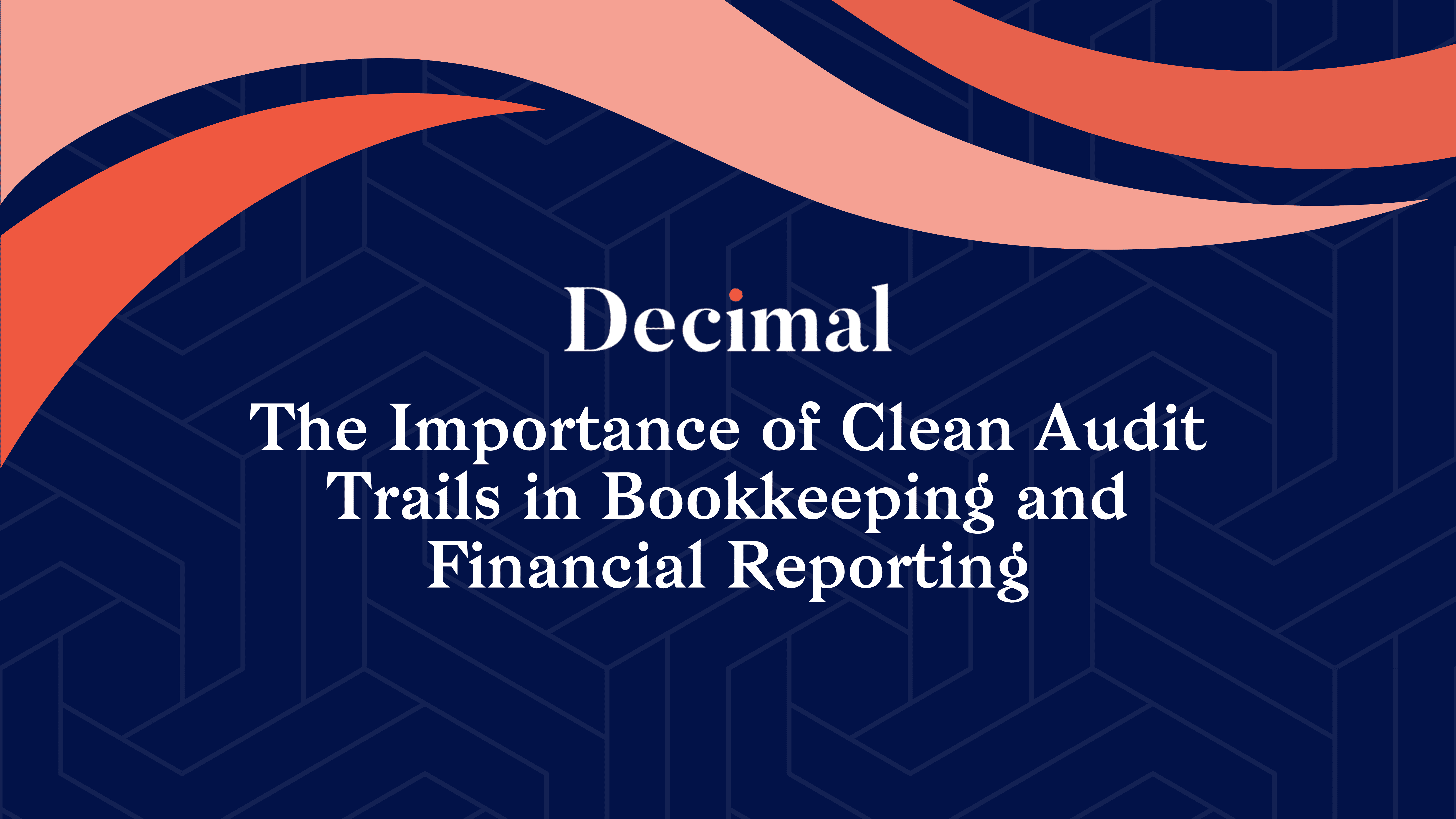The Importance of Clean Audit Trails in Bookkeeping and Financial Reporting
What Is an Audit Trail?
An audit trail is a chronological record that traces the history of every transaction within a financial system. It documents each step in the creation, approval, modification, and execution of a transaction. These records provide transparency and help internal teams, external auditors, or regulatory bodies verify the completeness and accuracy of financial information.
A well-maintained audit trail should capture:
- The original transaction entry
- Any edits or updates made
- User information linked to each action
- Supporting documentation (such as receipts, invoices, or approvals)
- Date and time stamps
Audit trails apply to a wide range of financial processes, including payroll, accounts payable, invoicing, journal entries, and financial reporting.
Why Audit Trails Matter
Clean audit trails create clarity and reduce the risk of misstatements, fraud, and regulatory noncompliance. They also improve operational efficiency and instill confidence among stakeholders. The benefits include:
1. Compliance support - Audit trails help businesses meet regulatory requirements and tax standards. For companies subject to external audits or industry-specific rules, a clean trail is essential for proving the validity of transactions.
2. Fraud prevention and detection - By tracking who made what changes and when, audit trails discourage unauthorized activity and help detect anomalies. This improves internal controls and reduces the risk of financial loss.
3. Easier reconciliations - Audit trails simplify the process of reconciling accounts by clearly showing how transactions flowed through the system, what was changed, and why. This helps identify and correct discrepancies quickly.
4. Stronger financial reporting - Accurate financial statements depend on well-documented data. Audit trails support the completeness and consistency of financial information, making reports more reliable.
5. Faster audits - A clean trail reduces time spent gathering documentation during internal or external audits. This leads to fewer interruptions, quicker audit completion, and reduced audit costs.
Best Practices for Maintaining Audit Trails
To ensure your audit trails support compliance and accuracy, apply these best practices:
1. Use accounting software with built-in audit trail features - Choose systems that automatically log user activity, transaction changes, and approval workflows. Avoid manual data entry or spreadsheets that lack version control.
2. Assign role-based access controls - Limit permissions so users can only perform actions relevant to their role. This reduces risk and ensures audit trails accurately reflect responsibilities.
3. Attach supporting documentation - Link invoices, receipts, contracts, or internal approvals directly to the transaction. Keep digital files organized and accessible for review.
4. Maintain consistency in recordkeeping - Standardize naming conventions, approval procedures, and transaction coding. Inconsistent entries create confusion and weaken the audit trail.
5. Review trails regularly - Conduct periodic internal reviews of audit trails to confirm compliance, assess risk exposure, and detect errors. These reviews support a proactive financial strategy.
6. Educate your team - Train staff on the importance of audit trails, how their actions are recorded, and why accuracy matters. A culture of accountability strengthens internal controls.
Common Pitfalls to Avoid
Even with systems in place, audit trails can fall short if not maintained properly. Common issues include:
- Allowing edits without tracking changes
- Relying on emails or verbal approvals with no documentation
- Using spreadsheets that lack version control or access logs
- Failing to review or reconcile transactions regularly
Avoiding these missteps helps build a resilient financial system and ensures confidence during audits or financial reviews.
Conclusion
Audit trails do more than track transactions—they uphold the integrity of your financial system. A clean, well-documented audit trail supports compliance, prevents fraud, and ensures that financial statements reflect the true state of your business. For financial professionals and bookkeepers, investing in strong audit trail practices lays the foundation for scalable, secure, and trustworthy financial operations.
If you’re looking for expert guidance to simplify your tax filing process, schedule a time with a Decimal expert at https://www.decimal.com/contact-us
Getting started in days.
Ready to simplify your accounting? Schedule a call with our team and explore your options. We’d love to hear from you!

